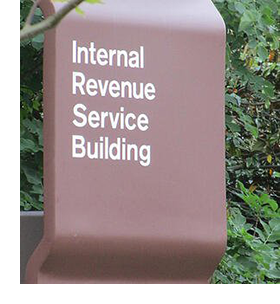With the start of the 2024-2025 school year seemingly right around the corner, the Ohio Department of Taxation announced an expansion of the state’s annual sales tax holiday.
Sale of Home and Capital Gains Tax
Zinner & Co. Real Estate Team real estate , Taxes - Planning, Rules and Returns , tax , taxes , tax avoidanceAre you thinking about selling your home but worried about the additional tax it could generate?
It is possible that you could be one of the many who can sell your home while avoiding the capital gains tax.
IRS announces penalty relief for certain 2019 and 2020 returns
Zinner & Co. Tax Team tax services , Taxes - Corporate & Business , Taxes - Planning, Rules and Returns , Taxes - Individual , IRS , tax avoidance$1.2 billion in penalties will be refunded to 1.6 million taxpayers
In late August, the Internal Revenue Service announced on its website that it had issued Notice 2022-36, which will provide penalty relief to most taxpayers who filed certain 2019 or 2020 tax returns late.
IRS Sends Out Letters Regarding Monthly Child Tax Credit Payments
Zinner & Co. Tax Team IRS , tax avoidance , Tax Credit , Child Tax Credit , American Rescue Plan ActIn early June, the Internal Revenue Service started sending letters to families about how they may be able to qualify for monthly Child Tax Credit payments.
The letters are going out to families who may be eligible based on information they included in either their 2019 or 2020 tax return or who used the Non-Filers tool on IRS.gov last year to register for an Economic Impact Payment.
The Biden Administration's Proposed Tax Law Changes
Zinner & Co. Tax Team Taxes - Corporate & Business , Taxes - Individual , tax , taxes , income tax , tax avoidanceIn early June, the U.S. Treasury Department released its general explanations of proposed changes to the U.S. tax code.
Please note, the following items have only been proposed. In order to become law, they must pass through both the U.S. House of Representatives and the U.S. Senate.
New 1099-NEC Form For Nonemployee Compensation
Zinner & Co. Tax Team Taxes - Planning, Rules and Returns , Taxes - Individual , tax , taxes , income tax , tax avoidanceThe PATH Act accelerated the due date for filing Form 1099 that includes nonemployee compensation (NEC) from February 28 to January 31 and eliminated the automatic 30-day extension for forms that include NEC. Starting with tax year 2020, taxpayers should use Form 1099-NEC to report nonemployee compensation.
Form 1099-NEC replaces the use of box 7 on Form 1099-MISC from previous years. Other uses of 1099-MISC have not changed and will continue to be used for common payments such as rent and payments to an attorney.
Plan for Tax Season
Brett W. Neate, CPA, MTax tax services , Taxes - Corporate & Business , Taxes - Planning, Rules and Returns , Taxes - Individual , tax , taxes , income tax , tax avoidanceMany individuals may think the time to plan for tax season occurs during the tax season, which occurs after their tax year has ended.
Unfortunately, this is often too late to make any adjustments, which may have benefited the taxpayer.
Similarly, businesses can also fall into this line of thinking and fail to plan for tax season during their tax year.
Ask the Expert: What Does ‘Like-Kind’ Mean in a 1031 Exchange?
Zinner & Co. Real Estate Team real estate , income tax , tax avoidance , personal finance , 1031 ExchangeQ: What Does ‘Like-Kind’ Mean in a 1031 Exchange?
A: As you are probably aware, a 1031 Exchange refers to a provision in the U.S. tax code, which allows real estate investors to sell or dispose of a piece of real property and purchase another piece of “like-kind” property without incurring any short-term tax consequences. But what does like-kind mean?
5 Reasons You Should Begin Planning for Tax Season NOW
Zinner & Co. Tax Team tax services , Taxes - Corporate & Business , Taxes - Individual , income tax , tax avoidanceIt’s the 4th quarter. The holidays are right around the corner. The last thing you may want to think about is income taxes … but there are some compelling reasons why you should be thinking ahead.
Last year’s tax season saw the biggest change to the tax code in over 30 years. At the end of the tax season, we noted that one of the lessons learned was that individuals who engage us in tax planning early, on average, fared much better than those who did not. There are some very important reasons for this:
ALERT: Be Wary of States Circumventing the $10,000 SALT deduction limitation
Zinner & Co. Tax Team Taxes - Planning, Rules and Returns , Taxes - Individual , deductions , taxes , IRS , tax avoidance , Tax Cuts and Jobs Act of 2017Current Law:
The Tax Cuts and Jobs Act of 2017 limits individual taxpayer's state and local tax (SALT), itemized deduction to $10,000 (including real estate taxes). The previous law allowed an unlimited deduction. This change may be detrimental to many individual taxpayers who relied heavily on these deductions in the past.
State Work-Arounds:
Some states have considered "work-arounds" to combat this limitation. Select states (California, Connecticut, Illinois, New York and New Jersey, thus far) have created state
About Us

Since 1938, Zinner has counseled individuals and businesses from start-up to succession. At Zinner, we strive to ensure we understand your business and recognize threats that could impact your financial situation.
Recent Blog Posts
Categories
- 1031 Exchange (2)
- 401k (2)
- 529 plan (4)
- ABLE Act (1)
- account systems (3)
- accounting (8)
- Affordable Care Act (8)
- alimony (2)
- American Rescue Plan Act (1)
- Ask the Expert (5)
- Audit and Assurance Department (13)
- audits (8)
- Bank Secrecy Act (1)
- banks (1)
- Barbara Theofilos (6)
- Beneficial Ownership Information (1)
- Bitcoin (1)
- block chain (2)
- BOI (3)
- Bookkeeping (1)
- Brett W. Neate (28)
- budgets (1)
- Bureau of Worker's Compensation (12)
- Business - Management, Issues & Concerns (51)
- business income deduction (3)
- business succession (7)
- business travel expense (3)
- business valuation (5)
- capital gains (2)
- careers (7)
- cash flow (2)
- Charitable Donations (2)
- Child Tax Credit (2)
- Chris Valponi (8)
- City of Cleveland (1)
- Cleveland COVID-19 Rapid Response Fund (1)
- Cleveland Rape Crisis Center (2)
- college (3)
- Community (24)
- Compliance (1)
- Coronavirus (24)
- Corporate Transparency Act (1)
- COVID-19 (30)
- Credit card fraud (5)
- credit reporting (2)
- cryptocurrency (2)
- CTA (2)
- cybersecurity (17)
- dead (1)
- DeAnna Alger (6)
- death (2)
- debt (4)
- deductions (14)
- Deferring Tax Payments (4)
- Department of Job and Family Services (2)
- depreciation (2)
- Digital Tax Payment (3)
- divorce (4)
- DOMA (3)
- Economic Impact Payments (2)
- Economic Injury Disaster Loan (4)
- education (8)
- EIDL (1)
- electronic filing (4)
- Electronic Tax Payments (3)
- Emergency Working Capital Program (1)
- employee benefit plan auditor (1)
- Employee Leave (3)
- Employee or Independent Contractor (6)
- Employee Retention Credit (3)
- employment (2)
- ERC (3)
- Eric James (8)
- Estates, Gifts & Trusts (48)
- expenses (5)
- Families First Coronavirus Response Act (2)
- FASB (1)
- FBAR (1)
- FDIC coverage (1)
- Federal Assistance (4)
- filing (3)
- financial planning (8)
- Financial Planning - College (9)
- financing (3)
- Firm news (119)
- first responders (1)
- FMLA (1)
- foreign assets (3)
- fraud (38)
- FSA (1)
- fundraising (9)
- Gabe Adler (1)
- gift tax (5)
- HDHP (2)
- health care (3)
- home (2)
- home office (1)
- Howard Kass (2)
- HRA (1)
- HSA (5)
- identity theft (34)
- income (1)
- income tax (58)
- independent contractor (1)
- Inflation (1)
- Insurance (7)
- internal control (4)
- international (2)
- Intuit (1)
- investments (4)
- IRS (91)
- jobs (5)
- John Husted (1)
- K-1 (1)
- Laura Haines (3)
- Layoff (2)
- Layoffs (1)
- leadership (3)
- lease accounting standards (1)
- life insurance (1)
- LLC (3)
- Loans (2)
- longevity income annuities (1)
- Lorenzo's Dog Training (1)
- Magic of Lights (1)
- management advisory (3)
- manufacturing (2)
- Matt Szydlowski (3)
- medical (7)
- Medicare (2)
- mergers and acquisitions (1)
- Mike DeWine (2)
- Millennial Concepts (2)
- minimum wage (1)
- NAIOP (1)
- National Defense Act (1)
- non-profit reporting (10)
- non-profits (38)
- not-for-profit (26)
- OATC (1)
- OBBB (3)
- ODJFS (1)
- office (1)
- ohio (13)
- Ohio Accounting Talent Coalition (1)
- Ohio business owners (18)
- Ohio Department of Jobs and Family Services (4)
- Ohio Department of Taxation (7)
- Ohio Incumbent Workforce Training Voucher Program (1)
- Ohio Society of Certified Public Accountants (1)
- One Big Beautiful Bill (9)
- Online Tax Payment (4)
- Operations (2)
- OPERS (1)
- OSCPA (1)
- Overtime (1)
- owners of foreign entities (1)
- partnerships (5)
- passwords (1)
- Paycheck Protection Program (9)
- payroll (8)
- penalties (3)
- pension (2)
- personal finance (2)
- planning (4)
- ppp (7)
- Productivity (5)
- Qualified Business Income (1)
- quickbooks (10)
- real estate (14)
- record retention (2)
- records (2)
- Reporting (1)
- Republican National Convention (1)
- Retirement Planning & IRAs (54)
- Richard Huszai, CPA (5)
- RITA (1)
- Robin Baum (6)
- RRF (1)
- S Corporation (1)
- SALT (8)
- SBA (8)
- scams (14)
- SECURE 2.0 Act (1)
- security (6)
- SharedWorks (1)
- Shutdown (3)
- Silver Linings (9)
- simplified employee pension (1)
- Small Business (5)
- SMB (12)
- Social Media (1)
- social security (4)
- Speaker Series (2)
- spouse (1)
- start ups (8)
- Stay at Home Order (3)
- Steven Mnuchin (1)
- Sue Krantz (6)
- SVOG (1)
- tangible property (1)
- tax (27)
- tax avoidance (12)
- Tax Credit (7)
- Tax Cuts and Jobs Act of 2017 (31)
- Tax Exempt (1)
- Tax Holiday (1)
- Tax Interns (2)
- tax services (28)
- taxes (45)
- Taxes - Corporate & Business (107)
- Taxes - Individual (124)
- Taxes - Planning, Rules and Returns (197)
- TechCred (1)
- technology (8)
- The CARES Act (6)
- The SOURCE (1)
- tiag (3)
- transaction advisory (2)
- Treasury Department (5)
- Trump Account (1)
- tuition (3)
- U.S. Department of the Treasury (1)
- U.S. Small Business Administration (6)
- Unclaimed Funds (1)
- Unemployment Benefits (4)
- Unemployment Insurance (1)
- withdrawls (2)
- withholding (6)
- Workers Comp Billing Changes (1)
- Zinner & Co. (35)
- Zinner News (32)












